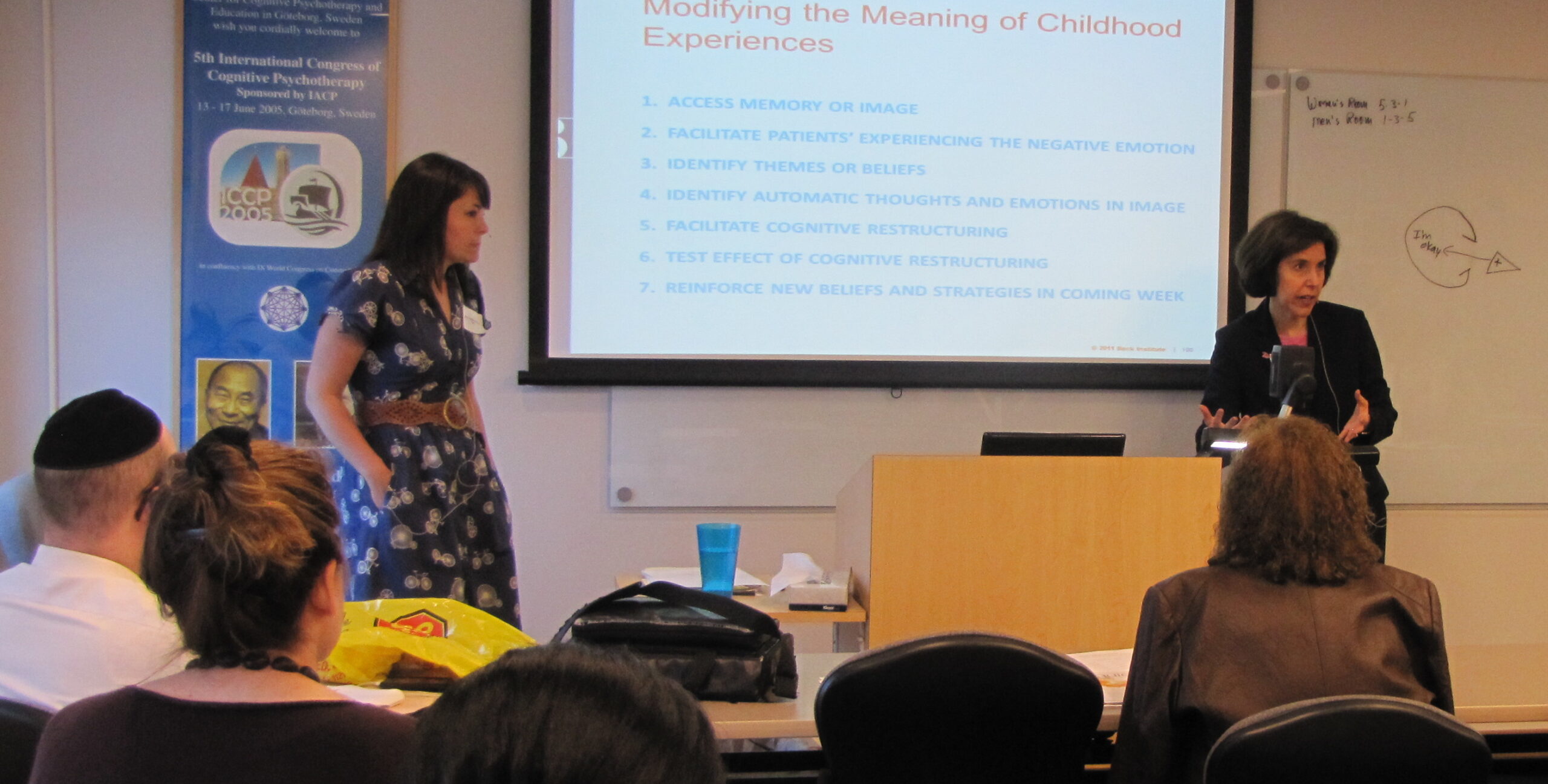 Earlier this month, Beck Institute held the first Cognitive Behavior Therapy Workshop Level II: Personality Disorders and Challenging Problems. In attendance were psychologists, psychiatrists, social workers, councilors, and other professionals from Brazil, Canada, Hong Kong, Sweden, Thailand, and nine U.S. states. This higher level workshop provided extra training and guidance to professionals that wished to improve their abilities for the benefit of their clients.
Earlier this month, Beck Institute held the first Cognitive Behavior Therapy Workshop Level II: Personality Disorders and Challenging Problems. In attendance were psychologists, psychiatrists, social workers, councilors, and other professionals from Brazil, Canada, Hong Kong, Sweden, Thailand, and nine U.S. states. This higher level workshop provided extra training and guidance to professionals that wished to improve their abilities for the benefit of their clients.
Demonstration of Cognitive Behavioral Therapy Techniques
The workshop focused on the use of CBT for challenging problems, anger management, substance abuse, and Axis II disorders. The Beck Institute faculty used role-plays and discussions to demonstrate the CBT techniques that would be useful with various patients. On day two, Dr. Aaron Beck spoke about research being done currently on the use of CBT with Schizophrenic patients. Treatments are looking into the negative symptoms of patients and working with them to change their emotions regarding the hallucinations. Random assignment of medication in Britain has shown that patients, who discontinue use of medication, still improve with CBT. The workshop attendees were then able to see Dr. Aaron Beck use the techniques he pioneered in two role-plays. Attendees brought real patient scenarios in front of the group in order to gain insight into treatment. The first role-play was about a lawyer in her late 30’s who went through a recent divorce. She now has signs of depression, social anxiety, and OCD. After the role-play, participants noted the following:
The first role-play was about a lawyer in her late 30’s who went through a recent divorce. She now has signs of depression, social anxiety, and OCD. After the role-play, participants noted the following:
- Dr. Beck followed a pattern of asking questions to elaborate on emotions and beliefs and then providing capsule summaries of the patient’s beliefs in an attempt to narrow in the focus of the problem.
- Using mental rehearsal as an intervention, the patient would be able to see the rationality, or lack thereof, of her beliefs.
- After focusing in on the problem, Dr. Beck analyzed the situation and assigned the patient homework (attending a party) that would push her anxieties.
The second role-play was about an unemployed man in his 40’s who has an unstable relationship, little friends, and constantly complains about the way he is treated. This patient has a history of abuse and shows signs of social anxiety. Attendees noted the following in Dr. Beck’s approach:
- Dr. Beck focused on trying to conceptualize the patient’s views.
- Using gentle interruptions and positive feedback, Dr. Beck was able to give the patient advice without looking like an authority figure.
- The conversation was always pulled back into that which the patient had control over.
Participants received professional training from Aaron T. Beck, M.D., Judith S. Beck, Ph.D., Leslie Sokol, Ph.D., and Norman Cotterell, Ph.D. 







